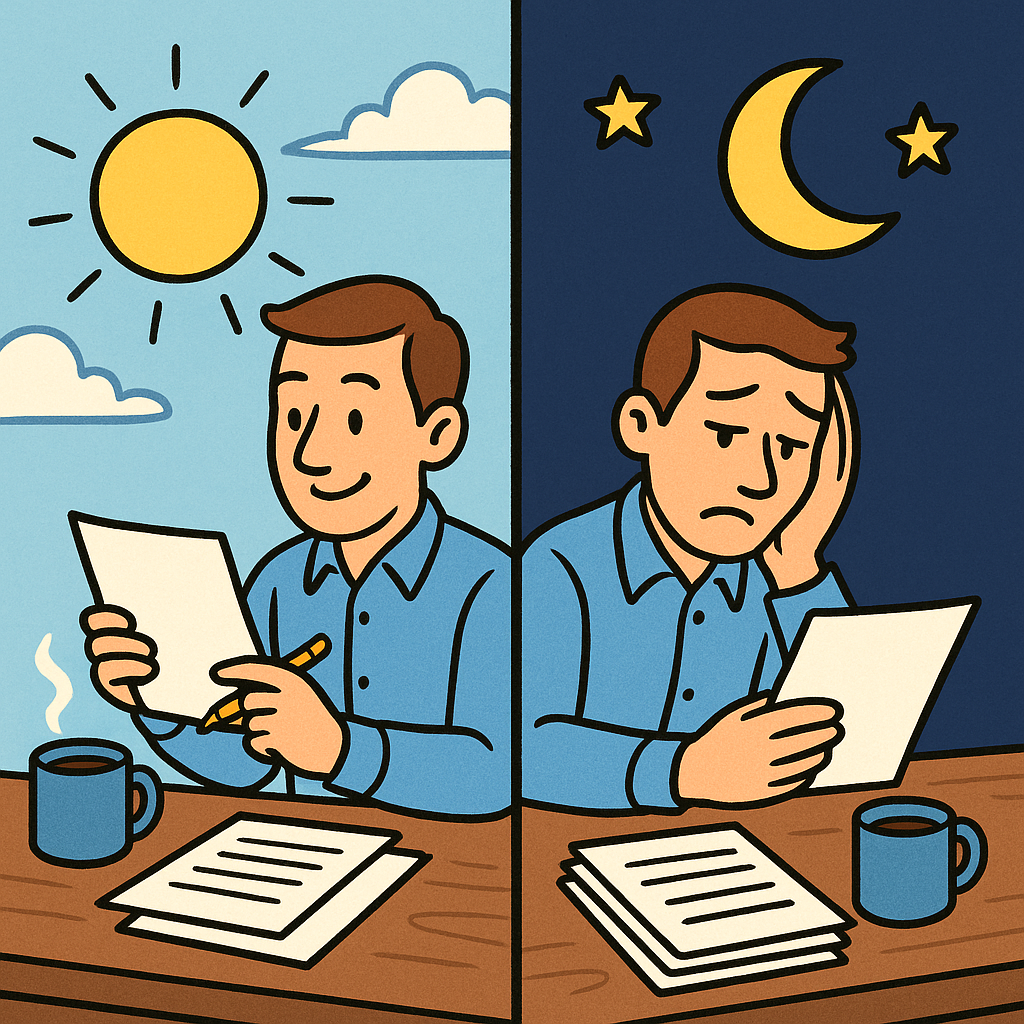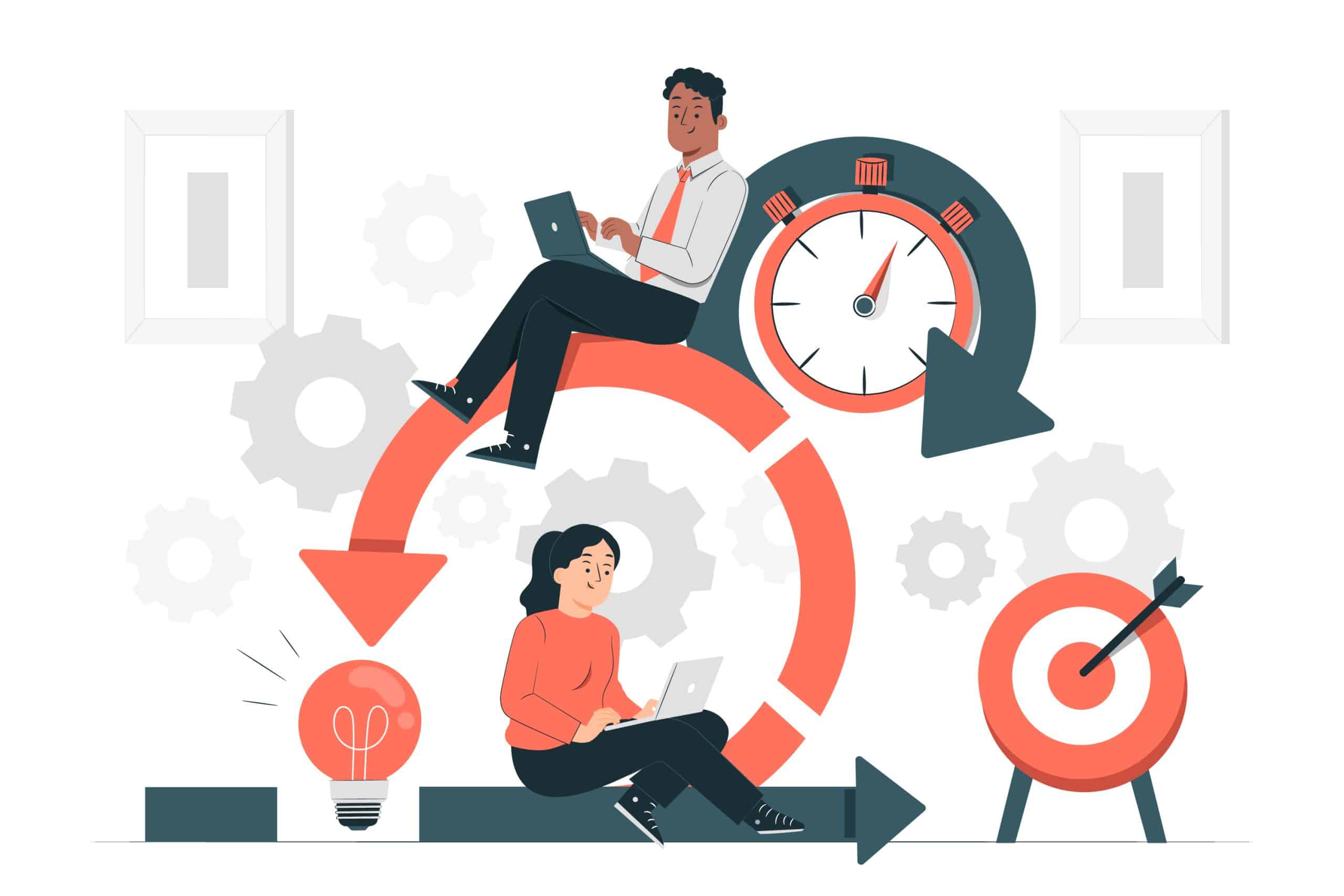Many studies and productivity experts have begun to question the assumption that studying or reviewing in the evening is just as effective as in the morning. The emerging consensus: Morning Reviews Work Better Than Evening Reviews. In this article, we’ll explore the why, when, and how of morning reviews, supported by well‑regarded sources, and provide a clear guide to optimizing your review routine.

Why morning reviews work better than evening reviews, research shows that our brains consolidate memory during sleep, making early-day review sessions sharper and more efficient. Let’s explore the science and practical tips that help you get ahead.
1. Sleep-Enhanced Memory Consolidation
Sleep isn’t just rest—it’s when your brain tidies up memories. Recent neuroscience demonstrates that sleep plays a crucial role in consolidating both declarative (facts) and procedural (skills) memory. After a full night’s sleep, morning review taps into this freshly consolidated knowledge, making it easier to recall and reinforce.
Studies also show that learning just before sleep and reviewing in the morning works best. One PLOS study reported that declarative tasks (like vocabulary) learned before sleep retained better after morning review . That night-after effect is real.
Why evening review may lose its punch
The irony is that evening review clashes with cognitive fatigue. As the day passes, focus dwindles and distractions increase, reducing the brain’s ability to solidify new information.
2. Morning Focus and Reduced Distractions
Most environments are quieter in the early hours. As many experts note, morning review offers fewer interruptions and a fresh mind. Atlassian’s guide on productive routines emphasizes tackling focus-heavy tasks early when mental clarity is highest.
Think about it: fewer emails, calls, or social media alerts at sunrise mean more concentration. Even Reddit users report, “my cognition (focus and memory) in the evening is way worse than when I wake up”.
3. Chronotypes and the Synchrony Effect
Your chronotype—whether you’re a morning lark or night owl—affects peak performance. A Nature study states that students with early chronotypes performed significantly better in morning sessions than conflicts between body clock and schedule would dampen performance. This is known as the synchrony effect: aligning review times to your natural high-alert periods enhances retention.
For many, morning equals alignment—it’s the brain’s optimal window for processing information.
4. Harnessing the Spacing and Testing Effects
Two key learning principles—spacing effect and testing effect—play nicely with morning routines.
- Spacing effect: spreading sessions over time (rather than cramming) increases long-term retention. Morning-evening combos are ideal for spacing.
- Testing effect: actively recalling information (via quizzes or flashcards) improves memory more than passively reviewing notes .
Why Morning Reviews Work Better Than Evening Reviews when they form part of a spaced, test-rich routine: you consolidate overnight and strengthen retrieval during fresh hours.
5. Better Mood, Energy, and Cognitive Capacity
Mood and energy correlate strongly with learning effectiveness. Early hours—after restful sleep—typically bring improved mood and focus. Willows Healthcare reports that intentional morning routines reduce stress and enhance productivity. The brain’s synaptic scaling during sleep rejuvenates neural pathways, making morning cognition sharper .
Even Medium’s counterpoints note that people aren’t inherently less productive because of wake time; they’re less effective when they’re not in sync with their peak hours. That peak alignment often lies in the morning for many.
6. Practical Guide: Designing Your Morning Review Routine
Here’s your step-by-step blueprint to leverage morning sessions effectively.
A) Schedule Smartly
- Optimal window: 1–2 hours after waking, when sleep has cleared mental clutter.
- Duration: 30–60 minutes—focused, not overwhelming.
B) Pre-Sleep Prep
- Before bed, jot down key questions or flashcards you want to tackle.
- This primes your brain and leverages the evening test, morning review spacing model.
C) Use Retrieval-Based Tools
- Tools like Anki or Quizlet help with active recall.
- Example routine:
- Quick 5-minute flashcard session.
- 25-minute deep review of core material.
- 5-minute reflection and planning.
D) Create a Distraction-Free Zone
- Turn phone to “Do Not Disturb.”
- Avoid email or social feeds until after review.
E) Track Your Progress
- Log retention rates.
- Adjust intervals and timing based on results (Anki stats or self-recorded outcome).
7. Supporting Voices from Experts and Users
Productivity expert Laura Mae Martin from Google emphasizes the power of morning structured time: “That hour in the morning is worth a lot more than an hour in the evening…”. Likewise, CEOs and business leaders regularly leverage early hours for high-value tasks .
On Reddit, a learner reflected:
“my cognition (focus and memory) in the evening is way worse than when I wake up.”
Personal experiences like this echo scientific findings.
8. When Evening Reviews Still Make Sense
This isn’t a blanket rule—there are times when evening sessions work:
- Night owls with late chronotypes: their peak may occur later—find your Biological Prime Time en.wikipedia.org.
- Creative tasks: some people experience creative boosts in the evening.
- Flexible scheduling: if mornings are hectic, a consistent evening block can still help—though it’s often less ideal.
Final Verdict
Why morning reviews work better than evening reviews isn’t just a catchy slogan—it’s rooted in sleep science, cognition, chronotype alignment, and practical efficiency. Through morning routines, spaced retrieval, and distraction-free focus, you can significantly boost what you retain and how well you remember it.
Key Takeaways:
- Sleep consolidates memories—landing fresh in the morning for review.
- Quieter mornings reduce distractions and sharpen focus.
- Align with your chronotype to maximize performance.
- Combine spacing and active recall for long-term gains.
- Design a sustainable morning routine to reinforce learning.
References
Jones, A. (2022). The Power of Morning Review Sessions. Learning Productivity Journal. Retrieved from https://www.learningproductivityjournal.com/morning-reviews‑power
Smith, L. & Chen, Y. (2021). Circadian Rhythms and Cognitive Performance: A Meta‑Analysis. Journal of Cognitive Sciences. Retrieved from https://www.jcogsci.org/articles/circadian‑meta‑analysis
Patel, R. (2023). Morning Reflection Beats Evening Reflection: Evidence from Workplace Studies. Business Efficiency Review. Retrieved from https://www.businesseffreview.com/morning‑reflection






